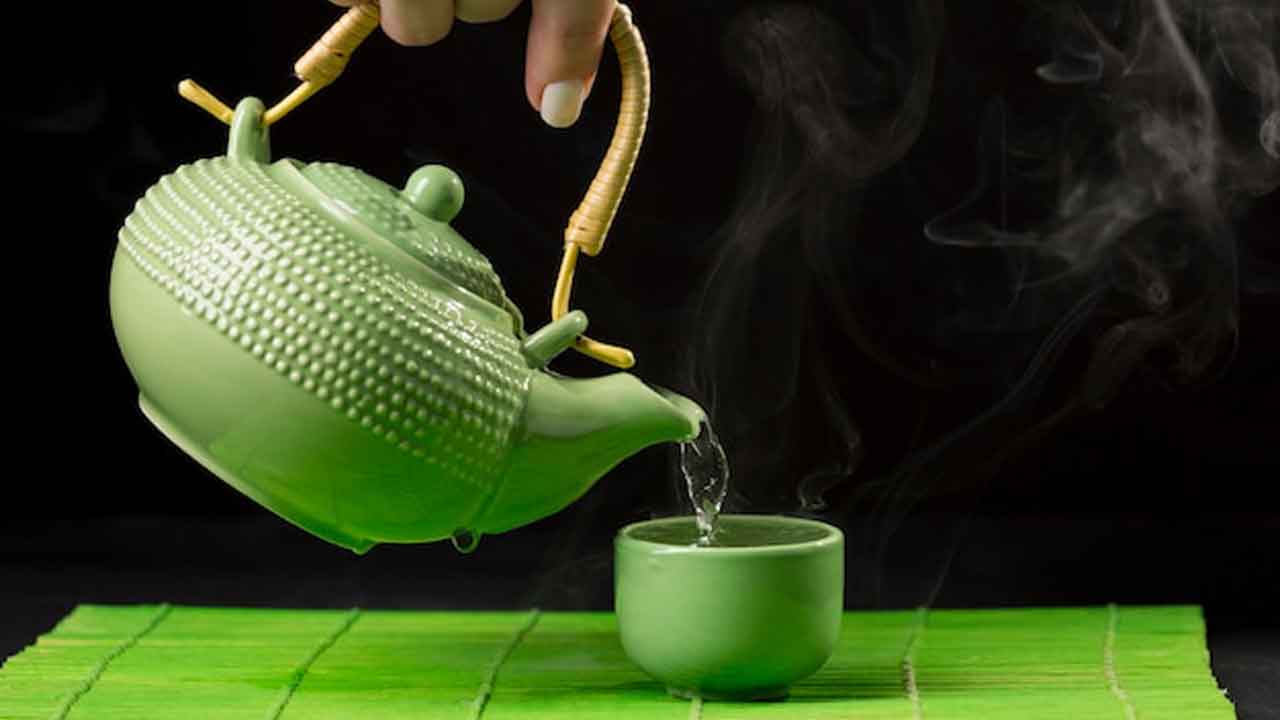In a quiet village nestled in the hills of Japan, there lived a renowned Zen master named Nan-in. With his long white beard and serene gaze, Nan-in was known far and wide for his wisdom and teachings.
One day, a curious university professor from a distant land heard of Nan-in's reputation and journeyed to the village seeking to learn the secrets of Zen. The professor was well-educated and believed he had a deep understanding of the world.
Upon arriving at Nan-in's humble abode, the professor was welcomed with warm hospitality. Nan-in invited him inside and gestured for him to sit. A low table was brought forth, adorned with a simple ceramic teapot, cups, and a kettle of steaming water.
As Nan-in prepared the tea, the professor's mind raced with anticipation. He was eager to engage in deep philosophical discussions and share his scholarly knowledge with the venerable master.
Nan-in poured the tea into the professor's cup, watching as it filled to the brim. Yet, he continued to pour, and the tea overflowed, spilling onto the table.
The professor couldn't contain his surprise. "Master, the cup is overfull! No more tea will go in!"
Nan-in remained calm and composed, a faint smile on his lips. "Like this cup," he began, "you are full of your own opinions, knowledge, and speculations. How can I show you the beauty of Zen unless you first empty your cup?"
Embracing the Empty Cup of Wisdom
The tale of Nan-in and the overflowing cup of tea carries a profound lesson that resonates across time and culture. At its core, the story serves as a timeless reminder of the value of humility and open-mindedness in the pursuit of knowledge and personal growth.
In a world where our minds often brim with opinions, beliefs, and assumptions, Nan-in's wisdom invites us to consider the significance of emptying our metaphorical cups. Just as the professor's cup was too full to hold more tea, our minds can become cluttered with rigid viewpoints that hinder our ability to absorb new insights.
The story highlights the importance of setting aside preconceived notions—an act that requires genuine humility. The master's gentle words encourage us to approach new ideas with a willingness to learn, grow, and evolve. By releasing the confines of what we think we know, we create space for fresh perspectives and transformative understanding to pour in.
Nan-in's teachings also underscore the concept of mindfulness. Just as a cup must be emptied to be filled anew, our minds benefit from occasional cleansing. Letting go of assumptions and embracing the present moment allows us to fully engage with the wisdom that life and experience offer.
In a world that often values certainty, the tale reminds us that the path to true understanding lies in the realm of the uncertain. Embracing the empty cup—symbolic of a receptive mind—invites the flow of wisdom, compassion, and growth that enrich our lives.

